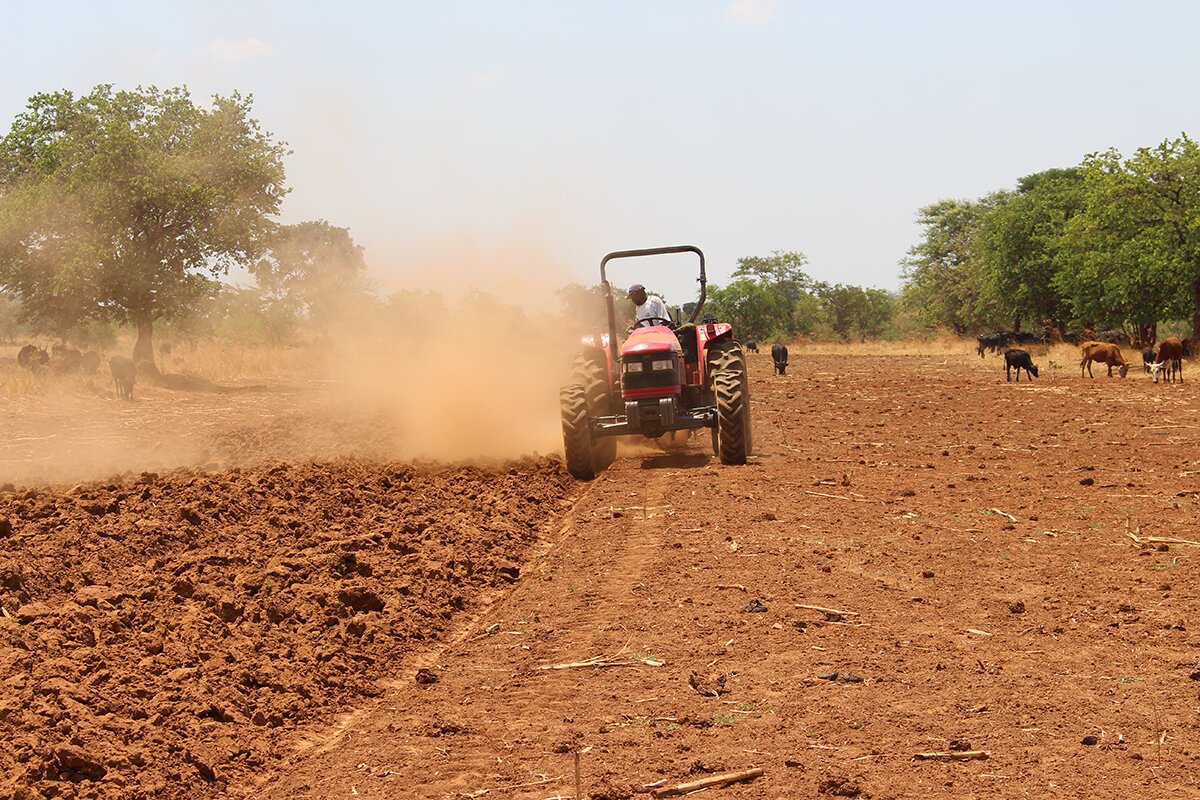OUR IMPACT
Our impact can be viewed through the lens of the United Nations SDGs. The development work that the Foundation invests in sustainable communities helps to realize the following SDGs in Sub-Saharan Africa:
 SDG 1: No poverty
SDG 1: No poverty
Our small holder partners in Guruve have succeeded in increasing soya and maize production over the past five years as reflected through their use of mechanization provided by EFF. Through this pilot program and donor funding, the Guruve program has alleviated poverty within the region by developing a sustainable business model as a tractor operator service. Operating from the Foundation’s agri-depot, the program provides ploughing, planting, and discing services on a pre-payment cash bases. The project has provided tractor services to approximately 400 farmers and we realised an income of $60,409.80 from farmer payments. An expenditure of $38,812.77 was incurred, leaving a profit of $21,597.03. This is being reinvested into the project looking for additional equipment, training and management. The increasing high yields, along with access to rural financial services, has driven the program’s success.

Mechanization project tractor driver at work

EFF produced maize
 SDG 2: Zero hunger
SDG 2: Zero hunger
All of the Foundation’s projects aim to transition smallholder farming communities from subsistence to sustainable. The increasing yields of our projects, along with higher annual incomes have helped decrease hunger rates within the communities in which we operate. From our Newala Pigeon Pea project farmers have increased their pigeon pea fields from half an acre to a full acre or more and the average yields now range from 100kg to 300kg per acre impacting their income boost from US$48 to $225. Projected production for this season in the region will be in the range of 150-250MT
 SDG 4: Quality education
SDG 4: Quality education
EFF has successfully engaged youth by providing workshops at schools in Tanzania as part of the seed multiplication programme. This education was delivered in several schools by Foundation agronomists in partnership with the schools, local government, the Ministry of Agriculture, and seed authority to introduce seed multiplication at the community level and teach the next generation of farmers’ good agronomic practices (GAP). This season EFF will increase the area of our Quality Declared Seed multiplication program to 3 acres of land made available by three primary schools in the area, along with the cultivation of maize and cow peas as for education and food security for the students.

Students taking part in EFF sponsored Climate Action Day

Women at demonstration plot for pigeon peas
 SDG 5: Gender equality
SDG 5: Gender equality
The Foundation strives to promote gender equality and found that an average of 45% of the participants in our projects are female smallholder farmers. Working with EFF on small term projects, they have been taught how to augment their income. Each woman has been successful and provides inspiration throughout their communities. The introduction of mobile payment methods ensures that the income generated goes directly to the women, guaranteeing them full access and control of their hard-earned money.
 SDG 13: Climate action
SDG 13: Climate action
The Foundation has introduced a school ethanol project in Zanzibar with the goal of empowering young women and men with knowledge through the Secondary Schools’ Ethanol Project and Competition. Carried out through a “Climate Action Day” event, the project will raise awareness about climate change, show students the risks of depending on wood or charcoal, introduce an eco-friendly alternative, and teach them about ethanol, its link with sugarcane and how to safely use an ethanol stove. This pilot aims to shift at least 15 families from traditional charcoal cooking to ethanol cook stoves.

Educating the next generation on clean energy with ethanol stoves

Women at agri-depot during procurement season
 SDG 17: Partnerships for the goals
SDG 17: Partnerships for the goals
EFF’s development groundwork has expanded through our partnerships with local communities, governments, NGO partners, and others. Our economic development initiatives have developed rural finance models creating an effective modality with our partners, NMB Bank, and NMB Foundation in Tanzania, and with multiple banks in Zimbabwe, financing over 4,000 farmers to grow soya and sesame. Over the last four years, loan repayment rates in Tanzania have averaged above 75% and have yielded an increase in income of USD $90-320 per farmer.

